
Millions of Americans are overwhelmed with debt, and a few missed or late payments on a credit card can quickly tank your credit score. However, there are solutions to clean up your credit. Negotiating your credit card debt, debt consolidation, refinancing certain loans or filing bankruptcy are a few options that can help you climb out of the hole of overwhelming debt. Although it may take time and gumption, an experienced credit repair lawyer in Texas can help you get creditors off your back and put you on the road to financial stability.
What Are My Rights as a Consumer?

Federal Credit Laws
Both federal and state credit laws are designed to protect consumers and regulate the credit industry. The United States Congress passed the Consumer Credit Protection Act in 1968, which requires creditors to disclose credit terms to consumers. It also prohibits discrimination based on gender or marital status, protects people from loan sharks and restricts wage garnishment.
In May of 2009, the Credit Card Accountability, Responsibility and Disclosure (CARD) Act was signed into law. This statute outlines several provisions that regulate the practices of lenders that issue credit cards. Bans on unfair or retroactive rate increases, late fees incurred due to receiving bills close to the due date and requirements that contract terms be written in language consumers can understand have all provided more protections for credit card consumers. Increased penalties for credit card companies that do not adhere to these laws are also supposed to protect consumers, but many lenders still practice underhanded tactics that can leave consumers confused and in debt.
The Texas Debt Collection Act
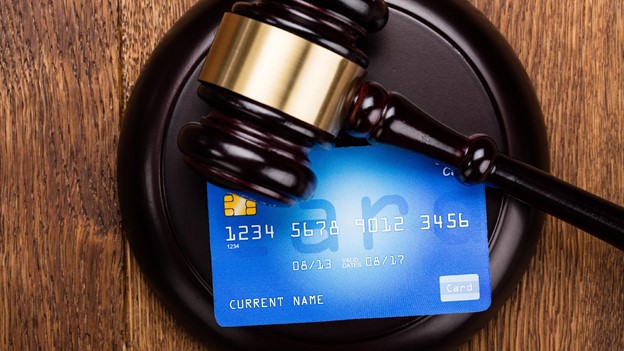
Consumers are afforded certain rights under the Texas Debt Collection Act. These state statutes prohibit debt collectors from employing abusive collection tactics such as threats of violence, using obscene language, false accusations of fraud or other crimes, threatening arrest or repossession without going through proper legal channels and calling to harass debtors anonymously or making repeated calls.
Fraudulent collection tactics such as using a false name, misrepresenting the amount or legal status of a debt or the nature of the services rendered by the debt collector are prohibited. It is also illegal for collection agencies to send false documents that appear to be from an official government agency, fail to identify who holds the debt or attempt to collect more than the originally agreed-upon amount. However, debt collectors are allowed to add attorney fees, collection fees and some other types of fees.
If your residence has been declared a homestead in Texas, it cannot be taken to pay debts such as credit cards or medical bills. However, foreclosure proceedings may be initiated if you get behind on your mortgage, fail to pay on a home equity loan or do not pay certain taxes.
Federal and state consumer protection statutes and credit laws are complex. That’s why it’s critical to have a credit lawyer evaluate your specific financial situation to determine the most effective course of action to help you eradicate or reduce your debt and repair your credit. If warranted, they may be able to help you file a complaint or lawsuit against any creditors whose illegal practices have negatively affected your credit.
What Can I Do to Repair My Credit?

When creditors demand payment or turn your debt over to a collection agency, it can be daunting. However, if you receive a notice that you owe a debt, it’s important to act quickly. Contacting your creditors or the collection agency to explain your circumstances shows that you are willing to work with them to repay your debt and can make creditors more likely to help you set up a payment plan. Due to the COVID-19 pandemic, many creditors have waived late fees and allowed consumers to defer payments or set up alternative payment plans.
Debt Consolidation or Settlement Negotiations
Consider debt consolidation or negotiating with creditors to settle your debt for a certain amount that is manageable for you to repay. A Texas debt attorney can help you negotiate and come to a fair agreement with creditors. Although this tactic may cause your credit score to take a dive for a while, it will gradually start to come up as you practice better financial habits and make good choices.
Dispute Incorrect Items on Your Credit Report
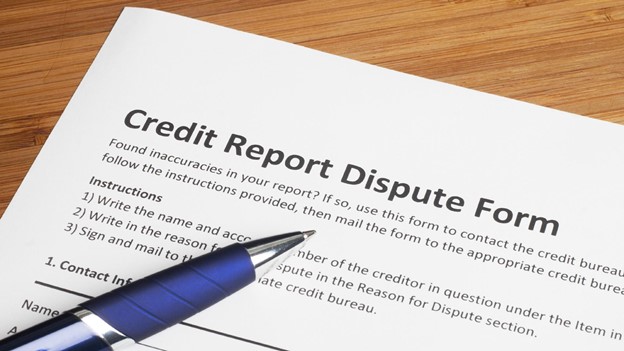
Another important part of credit repair is disputing items on your credit report that haven’t been reported correctly. It’s crucial to check your credit report periodically. Under the Fair Credit Reporting Act, you are entitled to a free copy of your credit report on a yearly basis. Keeping an eye on your credit helps protect against identity theft and helps you stay abreast of any reporting errors.
Credit Counseling
Credit counseling can be a viable option for credit repair if you have the income to create a practical plan to repay your debt in a fairly short amount of time. You’ll meet with a financial counselor to help you analyze and organize your finances, come up with a payment strategy, and determine whether debt consolidation will benefit you.
When looking for a credit counseling agency, it’s a good idea to get a referral from a credit repair attorney or finance professional. Typically, credit counseling cannot eliminate or reduce debt as bankruptcy can. Trusting an unscrupulous credit counselor who claims to look out for your best interests and says they can erase your debt may actually put you in an even more precarious financial situation.
Filing Bankruptcy
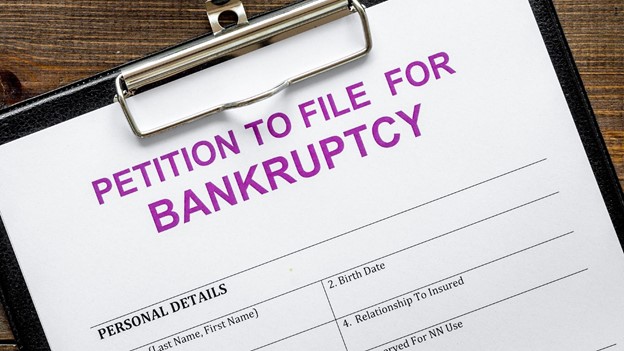
If your credit score is low and you’re dealing with significant debt, filing Chapter 7 or Chapter 13 bankruptcy in Texas can help provide a clean financial slate. Which type you choose will depend on your specific circumstances. Filing bankruptcy can be a complex process. A Dallas bankruptcy lawyer can help you determine which option will work best for you, assist you with your bankruptcy filing and provide guidance on how to repair your credit after bankruptcy.
Chapter 7 Bankruptcy
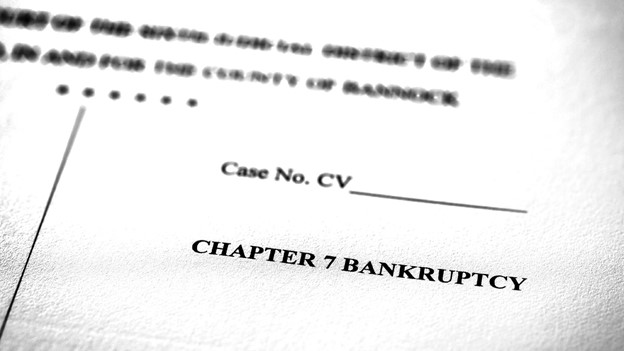
Chapter 7 wipes out unsecured debts such as medical bills, credit card debt and personal loans. Once your debts have been discharged in Chapter 7, you are no longer responsible for them and can begin repairing and rebuilding your credit. However, if you’re considerably behind on your mortgage or car payments, filing Chapter 7 bankruptcy may not prevent foreclosure or vehicle repossession in Texas.
Chapter 13 Bankruptcy
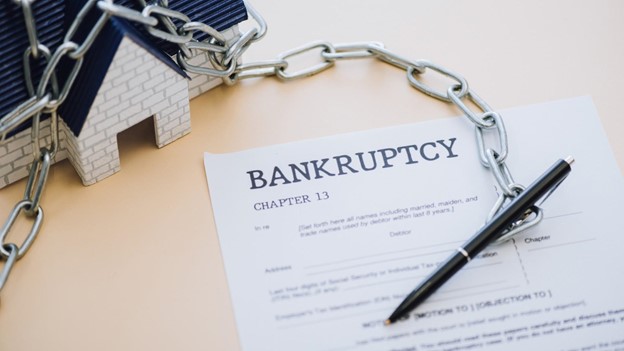
Chapter 13 bankruptcy lets you reorganize and repay certain debts through a 3- to 5-year payment plan. You should be able to keep your home and vehicles, and under the supervision of the Texas bankruptcy courts, you may be able to modify loan agreements and even eliminate some or all of your unsecured debt, such as credit cards or medical bills.
How Does Bankruptcy Help Repair My Credit?

Bankruptcy may stay on your credit report for 7-10 years, but it gives you a chance to start fresh financially. Although it will cause your credit score to go down at first, your score should keep getting better once you begin to establish a good payment record that’s documented on your credit report.
Prompt payment on unsecured or secured credit cards, your house and vehicles can help rebuild your credit. If you do obtain any credit cards, make sure to pay your balance in full every month and don’t overspend. Being mindful and prudent of how you spend and the amount of debt you take on can help keep you on the right track.
Schedule a Free Consultation With a Dallas-Fort Worth Debt Attorney

Credit repair can seem like a big undertaking, but it is worth the peace of mind and financial stability it can bring. At Leinart Law Firm, our team is dedicated to helping clients throughout North Texas find financial solutions that meet their needs. If you need assistance with credit repair, foreclosure, repossession or other financial issues, please use the convenient chat feature on our website or email us to schedule a complimentary consultation with a bankruptcy lawyer today.


